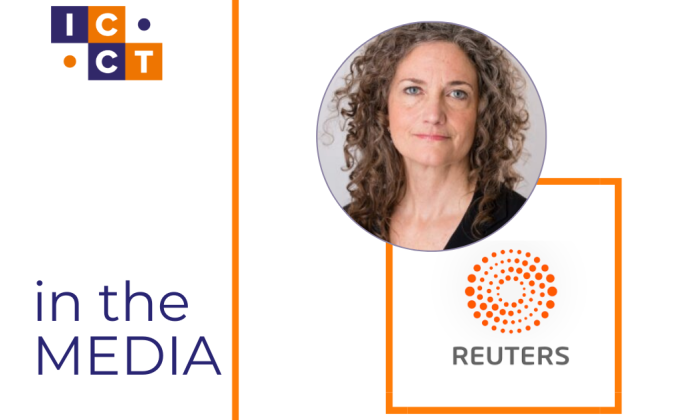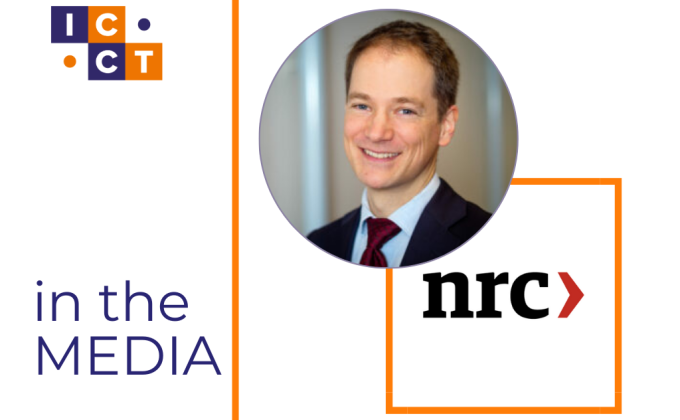On Wednesday 15 February 2012, 18:30 - 22:00 ICCT organised the seminar "Counter-Terrorism, Technology and Transparency: Reconsidering State Accountability" at Niewspoort, The Hague.
In the fight against terrorism, technology is a powerful tool. However, as the European Group of Personalities in the field of Security stated, "technology itself cannot guarantee security, but security without the support of technology is impossible'. This quote illustrates how on the one hand information and communications technology (ICT), biotechnology, neuroscience and nanotechnology may contribute to the development of important counter-terrorism strategies and on the other hand that we should be realistic about their impact.
There are no easy and quick technological fixes in counter-terrorism. Osama bin Laden, for instance, was found on the basis of human intelligence. Only after his possible location in Abbotabad, Pakistan was traced, did technology including satellite surveillance, Forward Looking Infrared Devices (FLIR) and biometric Secure Electronic Enrollment Kits (SEEKs) play a role in detecting activity in the compound and in identifying the al Qaeda leader. One could argue that technological developments as well as current security concerns such as international terrorism justify the use of innovative tools. After all, terrorists draw on modern technologies and especially the internet too.
For instance, cyber attacks on critical infrastructure such as energy, telecommunication networks and government intranets lead to new complex national security threats. Hence, through using technological security strategies, the state is adjusting to contemporary (societal) developments and threats. However, what distinguishes the state from other actors such as private entities is their monopoly to use force and its protection of the rule of law. Security technologies are a potential powerful means for social control by the state and there are foreseen and unforeseen social consequences to their use. If there are, for instance, no proper checks and balances in relation to new counter-terrorism technologies, there is a risk that it facilitates the creation of a so-called "surveillance society", where the collection of personal data affects everybody – potential terrorists as well as ordinary people who run the risk of being (preventively) labelled a threat to national security or public order.
After an introduction to the topic by ICCT Research Fellow Dr. Quirine Eijkman, Mr. Max Snijder (Director of the European Biometrics Group) gave a lecture about the many issues concerning the use of biometrics in counter-terrorism efforts. Mr Snijder concluded by stating that, while biometrics can be useful for both services as well as law enforcement, the big question in the use of biometrics lies in the return on investments; Counter-Terrorism itself is not an ultimate goal, but a means to an end: protecting society. Only when we determine what the return should be we can decide upon an action.
Following Mr. Snijder, Prof. Helen Fenwick provided an analysis of the use of CCTV as main counter-terrorism strategy in the UK, and the legal and social implications this brings with it. Mr. Gabriel Blaj and Mr. Owe Langfeldt (EU Data Protection Supervisor) took the legal perspective a step further by discussing the reconciliation of the right to privacy with the ever-growing focus upon security. In their perspective, a third factor comes into play when considering these questions: transparency.
The seminar was concluded by Mr. Mathias Vermeulen (Centre for Law Science Technology & Society, Vrije Universiteit Brussel), who considered the different trends among policymakers related to technological advances, and – related to the issues of transparency mentioned by Mr. Blaj and Mr. Langfeldt – the importance of "Privacy Impact Assessments" (PIA): a methodology for taking remedial actions as necessary to remedy or limit privacy invasion.
The presentations were followed by brief a discussion on whether or not the use of new technologies in the fight against terrorism should lead to reassessing governmental accountability, during which the public had the opportunity to pose questions.



